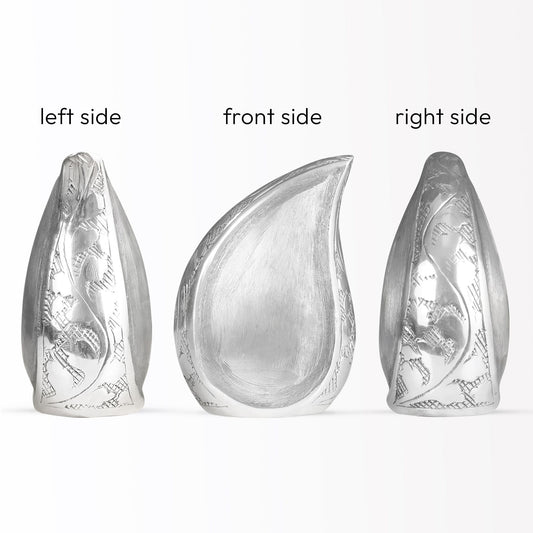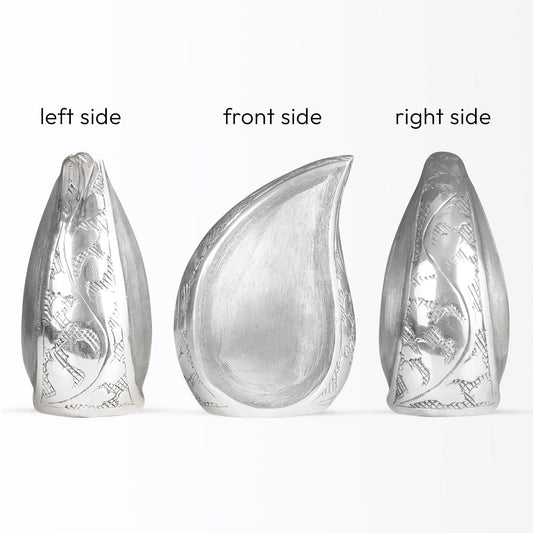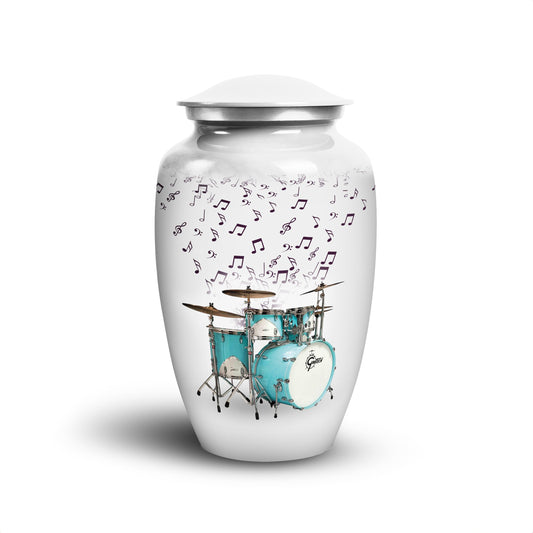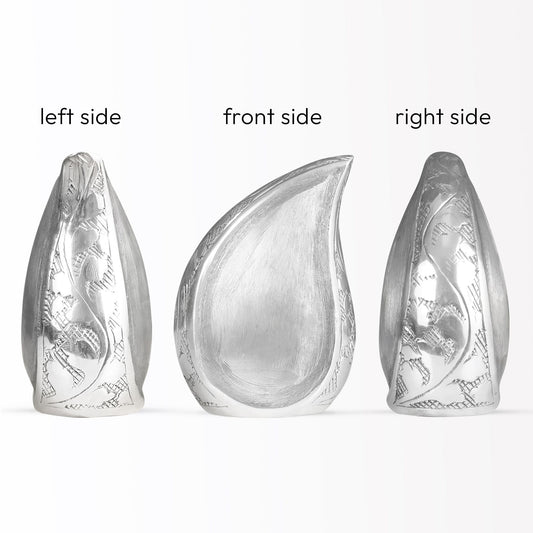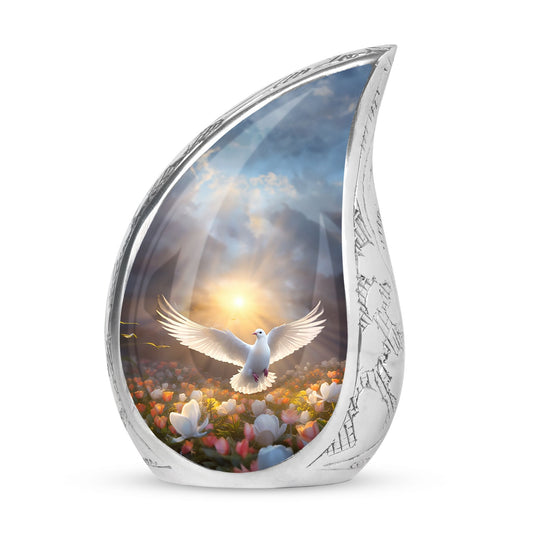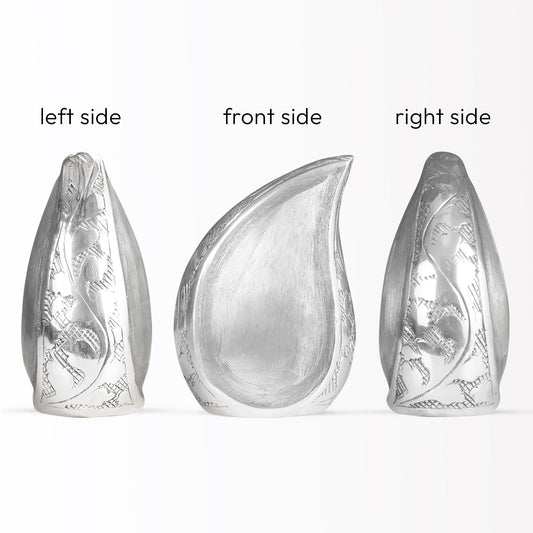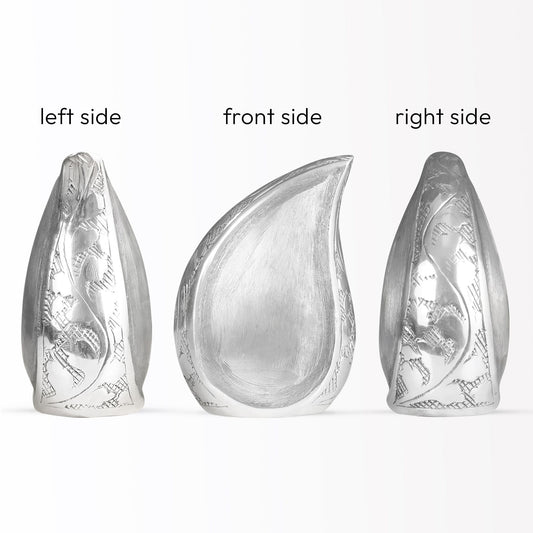Popular Urns
Moving Forward After Loss – Emotional Healing Journey

Losing someone dear leaves a profound impact, often shaking the very foundation of our existence. Whether it's a parent, spouse, sibling, child, or close friend, grief can feel like an overwhelming wave. But amid the pain, healing is possible. Growing from loss doesn’t mean forgetting — it means finding strength, discovering resilience, and gently returning to everyday life with a deeper understanding of love, life, and yourself.
The Initial Aftermath: When Loss Hits Home
The early days of grief are often a blur. Shock, disbelief, numbness, and sorrow cloud our judgment and disrupt our routine. This period may feel like time has stopped, and everyday tasks seem impossible. It’s important to understand that this phase is natural — your mind and body are adjusting to an emotional earthquake.
Important reminder: Give yourself permission to feel. Suppressing grief only delays the healing process.
How Losing a Loved One Changes Your Life
Grief transforms us. You may experience:
-
Emotional changes like sadness, anger, guilt, and even relief.
-
Physical symptoms such as fatigue, insomnia, or body aches.
-
Spiritual questioning, especially if you previously held strong beliefs.
-
Shifts in relationships — grief can isolate or deepen bonds with others.
You begin to re-evaluate priorities, life goals, and your sense of identity. Some find purpose in advocacy, others in creativity, or even in silence. Grief changes you, but growth is possible on the other side of pain.
Returning to Everyday Life After Loss
You’ll never be the same — and that’s okay. Returning to “normal” doesn’t mean returning to the old normal, but creating a new one that honors your journey.
1. Set Small, Achievable Goals
Start with simple tasks — making your bed, taking a walk, answering emails. These little wins build momentum and restore structure.
2. Create a Daily Routine
Consistency is comforting. Structure your day with activities that bring calm, even if temporarily. Reading, cooking, meditating — small rituals make a big difference.
3. Connect With Others
Isolation may feel easier, but connection promotes healing. Talk to friends or join a grief support group. You’re not alone in your pain.
4. Don’t Rush the Process
Grief has no timeline. Whether it takes weeks, months, or years — your pace is your own. Healing isn’t linear, and that’s completely normal.
5. Do Something in Their Memory
Plant a tree, write a journal, start a memorial tradition. Keeping their memory alive gives you purpose and helps you move forward with love.
What Happens to Your Heart When You Lose Someone?
The term “broken heart” is not just poetic — it’s real. Broken Heart Syndrome (Takotsubo cardiomyopathy) is a temporary condition where intense grief can physically affect your heart’s function. Symptoms may mimic a heart attack.
Emotionally, the heart bears a heavy load. The absence of a loved one creates a hollow ache that affects how we connect, trust, and love again. However, with time, care, and support, the heart does rebuild — wiser, stronger, and more compassionate.
What Not to Do When Grieving
While grief is deeply personal, there are some common pitfalls to avoid:
-
Don’t bottle up emotions: Repression can manifest as depression or anxiety.
-
Avoid substances: Drugs or alcohol only delay healing.
-
Don’t isolate forever: While solitude can help, staying disconnected harms long-term recovery.
-
Avoid “should-ing” yourself: “I should be better by now.” — No. Grief doesn’t follow rules.
-
Don’t compare your grief: Every loss is unique. Your pain is valid, no matter how others grieve.
Do Our Loved Ones Know We Miss Them?
Many people find comfort in believing their loved ones do know. Spiritual traditions, dreams, signs, or moments of synchronicity are often interpreted as messages from beyond.
Whether you believe in the afterlife or not, expressing your feelings — through letters, thoughts, prayers, or conversations — helps your heart release love. That love, felt deeply, doesn’t end with physical death. It transforms and continues in memory and spirit.
Embracing the New You
Grief never disappears, but it changes shape. Over time, sorrow makes room for joy, laughter, and new beginnings. You’ll still carry your loved one with you — in stories, photos, inside jokes, and quiet moments. Their love becomes a part of your foundation, guiding you as you rebuild life.
You are not broken. You are growing.
FAQ – Understanding Grief and Healing
How does losing a loved one change your life?
It changes your routine, relationships, emotions, and identity. You may find yourself reevaluating priorities, seeking purpose, or building resilience in unexpected ways.
How to get back to normal after losing a loved one?
Start small — rebuild a routine, allow yourself to feel, and reach out to others. Create a “new normal” that honors both your past and your present.
What happens to your heart when you lose a loved one?
Emotionally, it breaks. Physically, intense grief can mimic heart problems. But with time and care, the heart heals — often becoming more empathetic and strong.
What not to do when grieving?
Avoid suppressing emotions, isolating for too long, or rushing the process. Don’t compare your grief or feel pressured to “move on.”
Do our loved ones know we miss them?
Many believe they do — through signs, dreams, or spiritual connections. Whether symbolic or spiritual, these expressions of love help us heal and feel close to them.























